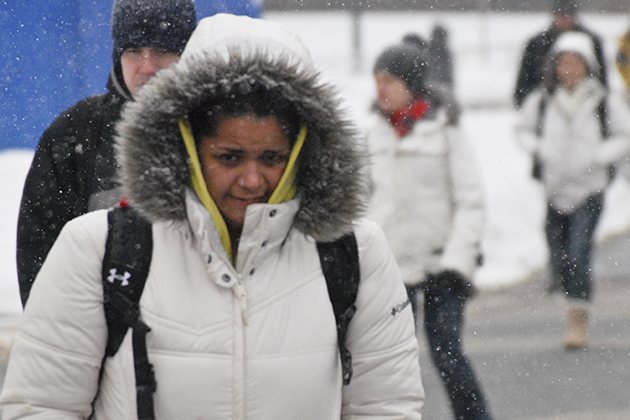
When the temperature tops out in the single digits just a day after highs in the 40s, it’s time to bundle up.
But the drastic temperature shift doesn’t in itself make you more prone to getting sick, according to Dr. Rebecca Andrews, a primary care physician at UConn Health.
“This winter especially has reminded us how quickly the temperature can drop,” says Andrews. “If you’re not dressed for winter, you’re putting yourself at risk for frostbite when the temperature drops.”
The frigid conditions in and of themselves do little to threaten the immune system of most, she says. But the secondary effects can.
“Remember, the colder it is outside, the more we tend to stay inside, where the air is warm and comfortable but also dry,” Andrews says. “Indoor heat can dry out your nose and mouth, making them less effective in protecting from infection. But that’s not due to the temperatures changes themselves.
“The other thing about being indoors, especially when people are together in relatively small spaces, is it can become a breeding ground for germs,” she continues. “We can have thousands of virus particles on our body. All you have to do is touch your face … now you potentially are leaving germs on anything you touch. They can get passed to the next person who touches the door knob or light switch, and so on. You can see how easy it is to spread a virus like a cold or flu.”
Public health data show influenza to be widespread in Connecticut this flu season, and the predominant strain involved in the influenza activity nationally is attributed to the H1N1 flu first introduced as swine flu in 2009, according to the U.S. Centers for Disease Control and Prevention.
“The good news is, this year’s flu vaccine contains the H1N1 strain,” says Andrews. “All the more reason to get your flu shot if you haven’t already. There are Americans in their 40s and younger, generally healthy, in hospitals with the flu, a majority of whom did not get their flu vaccine.”
It generally takes two weeks for the protective effects from the flu shot to start to take hold.
Follow the UConn Health Center on Facebook, Twitter and YouTube.



